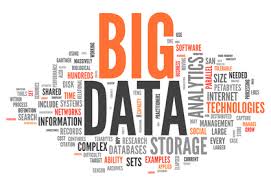Ready to Unlock Big Data for Your Small Business?
 How would your business benefit from a tool that helped you hone in on your customers' desires, allowing you to deliver a more focused and ultimately more profitable service?
How would your business benefit from a tool that helped you hone in on your customers' desires, allowing you to deliver a more focused and ultimately more profitable service?
Big data can seem messy and overwhelming, but it offers your business just that - the chance to really analyze your customers and market, giving you a competitive advantage.
But how can your small business start unlocking the potential of big data?
Understanding Big Data
Big data is a broad topic, with plenty of experts ready to offer you a different definition.
A simple rule of thumb is that any data set that is too big to be handled by standard office software such as a spreadsheet, is as big data. By sifting through and analyzing it you can drill right down into valuable information about your business and customers, which you can then use to improve your business operations and customer relations.
Does the potential for better understanding of your customers and the possibility of increased turnover sound appealing? To make the most of big data for your small business, ask yourself these three questions.
What Do You Need?
If you want to figure out how to unlock Big Data's big potential, start by knowing what data you need to collect.
Big data can get as big as you want it to get, but to get started it's vital to figure out what your priorities are.
Are you looking for information on which pieces of content are most popular on your blog? Or which customers are most likely to become repeat customers?
There's no reason you can't expand later - big data has lots of uses - but to start with, get your aims well defined.
How Will You Get It?
Now you know what data you need, draw up a plan for collecting it.
When you start looking into big data, you're going to find a lot of references to tools such as Hadoop which are designed to handle big data. For some companies, these tools are the right step.
For others, you might want to start smaller with more readily available tools that don't have such a steep learning curve.
Examples of tools you probably have at your fingertips right now to help you collect big data include:
- CRM tools;
- Website visitor analytics;
- Email marketing and data collection tools;
- Lead generating software or web forms;
- Social media metrics;
- Google trends.
What Will You Do With It?
So, you know what big data you need and how you're going to get it. Time to figure out how to process it when you get it.
To really make the most of your data, make sure that everyone in your team knows what your big data plan is, why it matters, and where they fit in the infrastructure. Who is going to analyze your data? Whose skills are most suited to that task? What training can you offer your employees?
The more you can learn and understand about big data and how it works, the more you can help your team to harvest and analyze the data, and adjust to working with it.
Once you've got your data, it's time to put it to use.
Whether by writing more targeted content or making more personalized offers for different customer demographics, keep the aim of your big data collection in mind. Build yourself a simple review process that will allow you to see if the changes you made as a result of your data had a positive outcome for your business.
Dealing with big data is no small task, but the potential benefits to your small business are huge.
With some research and proper planning, you can start gathering and using big data quickly.

 Delicious
Delicious Digg
Digg StumbleUpon
StumbleUpon Propeller
Propeller Reddit
Reddit Magnoliacom
Magnoliacom Newsvine
Newsvine
Comments
Post new comment